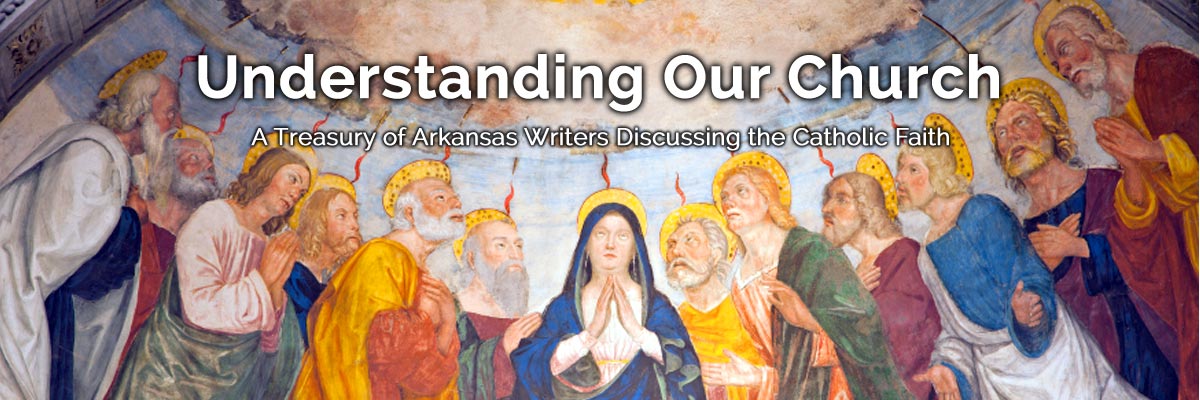Official Website of the
Catholic Diocese of Little Rock
Children can help their parents grow deeper in faith, holiness
Published: February 4, 2016
By Edward C. Dodge
Catholic High School for Boys
I love one of St. John Paul’s images for how we are the “image of God.” The pope taught that in Genesis 1, God created humanity as a relationship — “male and female he created them” — thereby emphasizing the couple’s relationship as an incarnation of trinitarian unity.
Cardinal Marc Ouellet expounded upon this teaching by pointing out that the couple is itself a “new creation.” Now ask yourself, what does God do in Genesis 1? Create! The first story of creation ends with God’s blessing human fertility, through which God invites us to participate in his ongoing act of creation by welcoming children into our lives. (Catechism of the Catholic Church, nos. 1652, 2205)
While they may sometimes make a mess, children are the “supreme gift of marriage” (catechism, no. 1652). Through their children, parents participate in the Father’s generosity and learn that love brings life always, and with it, indeed, an expansion of love and communion to others beyond the couple but equal in dignity.
Through their children, parents participate in the Father’s generosity and learn that love brings life always, and with it, indeed, an expansion of love and communion to others beyond the couple but equal in dignity.
Too, children help their parents to grow in holiness (catechism, no. 2227). Parents are the primary and principal educators of their children and bear a special responsibility to teach them the faith, which means parents need to be able to articulate it themselves. But children require parents to set good examples in life in many ways, and not just with information. For example, when parents learn to acknowledge their own failings, children learn about humility.
Parents therefore teach their children by being “generous and tireless in forgiving one another for offensives, quarrels and neglect.” (catechism, nos. 2223, 2227). Learning how to live together prepares family members for interaction in society at large, helping children to understand their neighbors not just as other “units,” but as a people “who by (their) known origins deserve (...) particular attention and respect,” thereby causing our relationships with others always to be personal in character.
In this always other-oriented capacity, the family puts into action its character as a domestic church, emphasizing its missionary character in love and mercy. (catechism, nos. 2212, 2205) There are, of course, particular hardships in families, ranging from infertility to an adult child’s departure from the faith. Even here, however, spouses can learn a new and powerful kind of spirituality: that of Christ crucified, who despite his immense pain offers love and patiently awaits to be loved in return.
I often think of my own relationship with God when I reprimand my children for not trusting me. Am I not guilty of the same lack of trust in my Father when I sin? And when we read at Mass lessons about a child’s obligation to his parents and I elbow my son and smile at him, I must also recall that I have obligations to my parents and to God.
I think in these ways, too, children contribute to the holiness of their parents. Finally, children bless us when they teach us to see the world and even our faith with new eyes. When our oldest was still a baby and very wiggly, Mass was often a challenge. One Christmas Eve we convinced ourselves we could sneak in an easy midnight Mass because he’d sleep through it. He had other plans.
However, at the elevation of the Eucharist, into the solemnity of the Church and accompanied only by the bells, he reacted to the glory before him with a sound of joy, ooo-ing for all to hear. Such joy should always accompany the miracle of the Eucharist.
Why not visit the catechism’s sections on marriage and family (nos. 1643-1666, 2196-2233 and 2247-2253) with your family and grow spiritually together?




